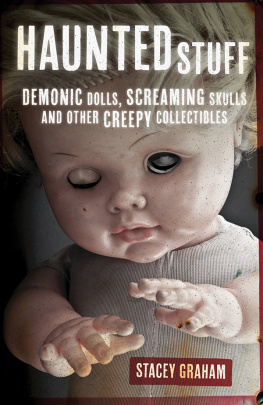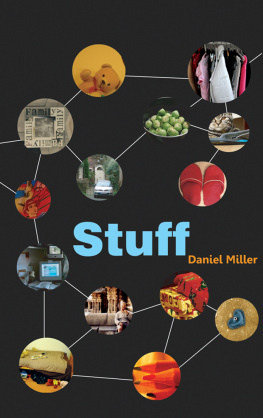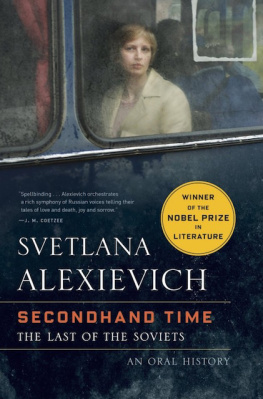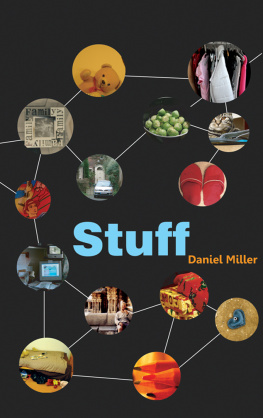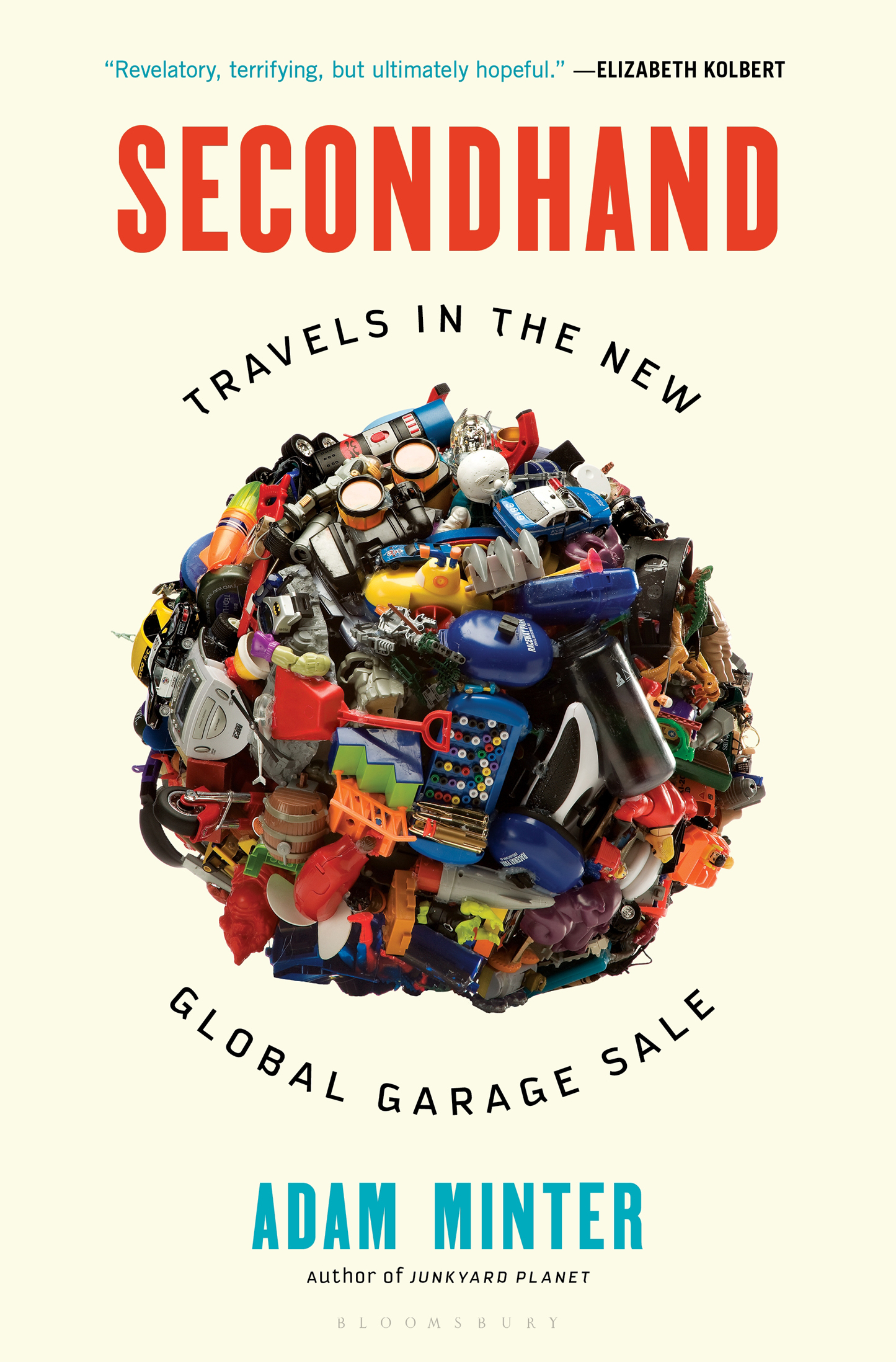Contents
Guide
Pagebreaks of the print version

For Christine
BY THE SAME AUTHOR
Junkyard Planet: Travels in the Billion-Dollar Trash Trade

CONTENTS
Took my diamond to the pawn shop
But that dont make it junk.
LEONARD COHEN
A blue Honda CX-7 is next in line at the Goodwill donation door at South Houghton and East Golf Links Roads. A fortyish brunette in black yoga pants and a baggy yellow T-shirt emerges slowly, iPhone to her ear. Three cars and two pickups are lined up behind her, but shes in no rush. Put the frozen dinner in the microwave for two minutes, she says as she saunters from the drivers seat to the rear passenger door on the opposite side. Yes, two minutes, she repeats as she slowly opens the door.
Standing nearby is Mike Mellors, a fifty-seven-year-old attendant. He stoops over the back seat, pulls out a white garbage bag bursting with what appears to be clothing, and places it on the top shelf of a two-level gray cart. He stoops farther and pulls out an ironing board and a pair of plastic deer antlers. Thank you for your donation, he says.
The woman lowers her phone and voice. Theres a community yard sale at Sierra Morado, she says with a knowing smile, as if providing a hot tip. Its getting hot, and people are saying, Screw itIm done. So thats why people are coming. With that, she gets into her car and drives away.
Its eleven A.M ., Saturday, and the Tucson heat is drenching Mellorss six-foot frame. But theres no time to retreat into the air-conditioned warehouse on the other side of the donation door. The donors are lining up. A Kia Sorento is next, its back seat piled with garbage bags. The youthful woman in the drivers seat lowers the windows and unlocks the doors, but she doesnt get out.
Yard sale? Mike asks as he opens the door and starts tossing the bags on a cart.
Over at Sierra Morado.
Nice. He hauls out six bags of clothes, an Ogio golf club bag holding two putters, a stack of 2014 World Cup commemorative cups, a ceramic drinking horn roughly the size of a trumpet, a beat-up Braun coffeemaker, four frying pans, and at least ten bags of party favors priced at twenty-five cents each, according to the bright pink tags. Mike pauses at the drinking horn, turning it in his hands. Thanks for your donation! he says and closes the door.
Three hours ago, just before the store opened, he told me that Goodwill is where Tucsons garage salers unload the things they cant sell and dont want to keep. Its a weekly phenomenon, boosted by the comings and goings of Tucsons military families and retirees. When they arrive, they need things; later, they realize they cant take it all with them.
The Sorento pulls away, and a large black Ford pickup carrying a ratty sofa takes its place. I walk through the donation door and into the wide warehouse. Its busy with employees whove arrived to process the rush of donations. Four women sort through boxes of clothes at the far end, and two young men sort through stacks of electronics not far from the donation door. A supervisor strides over from the clothing area to encourage Mellors to work faster.
Between 1967 and 2017, the money that Americans spent annually on stufffrom sofas to cell phonesincreased almost twentyfold. Some of that stuff will become treasured heirlooms worthy of future generations. Some will be buried in landfills, turned to ash by incinerators, orin rare casesrecycled into new goods and heirlooms. And some will persist, packed in basements, closets, attics, garages, and storage units. The precise breakdown is unknown, but there are hints. For example, one 2006 study of Los Angeles
Americans arent alone in their love of stuff. But they are unique in having so much space to store it. Thats a luxury other people would love to have. For example, the Japanese are just as shopping-mad as any CX-7-driving Tucsonan. But their homes are much smaller. So, to make room for new, many Japanese purge. Theres nothing particularly unique in their approach, but millions of Americanskeen to bring order to their homeshave embraced what Marie Kondo, the entrepreneurial Japanese organizing consultant with bestsellers and a hit television series, calls the KonMari Method. Its an enticing system: keep only what sparks joy; toss everything else. It also leaves open an essential and pressing question: What happens to all that stuff after its been KonMarid?
I pondered the question for the first time in 2014, shortly after I published my first book, Junkyard Planet: Travels in the Billion-Dollar Trash Trade . In it, I followed U.S. recyclables like cardboard, shredded automobiles, and Christmas lights around the world, primarily to China, and argued that if what you toss into your recycling bin can be used in some way, the international scrap recycling business will manage to deliver it to the person or company who can do so most profitably.
Readers soon contacted me to share how they recycle. Some wrote with descriptions and pictures of art projects that incorporate junked electronics like circuit boards and overhead-projector lenses; others offered detailed accounts of furniture and home restorations; I received notes from folks informing me that they were writing on computers and phones theyd repaired at home; and I was the lucky recipient of many, many invitations to visit flea markets, thrift shops, and antique stores.
As the descriptions and invitations accumulated, I felt torn. Its good to have ones work appreciated. But my readers werent writing to tell me about the sorts of things I described in Junkyard Planet like giant, multistory automobile shredders. They werent even writing to tell me about small-time junkyard dealers like my immigrant great-grandfatherdealers who made a living by collecting and purchasing the waste of their neighbors and selling it to bigger industrial recyclers. Despite my best efforts, the most enthusiastic readers of my book (judging from the notes they send to me) understand recycle as shorthand for reuse.
Thats understandable. For most people in affluent countries, the process of recycling ends at the point they sort their trash into a recycle bin. The highly industrialized processes that follow belong to faceless others. In contrast, the buying and selling of used stuff is intensely personal. Anyone can hold a garage sale, purge their closets on eBay, or visit a flea market. Reuse and resale give consumers a rare, tangible connection to the afterlife of their stuff.
Two weeks after Junkyard Planet was published, my mother passed away unexpectedly. Like so many Americans with parents who accumulated stuff over a lifetime, my sister and I were left with an uneasy question: What do we do with her stuff? From a sentimental standpoint, it was hard to let go of anything for fear it meant something to her. From a practical perspective, neither of us had the space to keep much. My sister and her family live in a two-bedroom New York City co-op; at the time, my wife and I rented a one-bedroom Shanghai apartment.
Our problem wasnt unique. Around the world, questions about what to do with the material leftovers of a life are becoming as much a part of the mourning process as the funeral. Theres so much, and the children all live somewhere else. Whos to clean it out?
Much of my mothers modest estate wound up at Goodwill. I concede I have no idea what happened to her china after I handed it to a donation door attendant. But I had faith thatlike the recycled metal that I wrote about in Junkyard Planet my mothers secondhand items would be used in some waynot landfilled, incinerated, or recycled. In part, I started this book to reassure myself that my instincts were correct.




